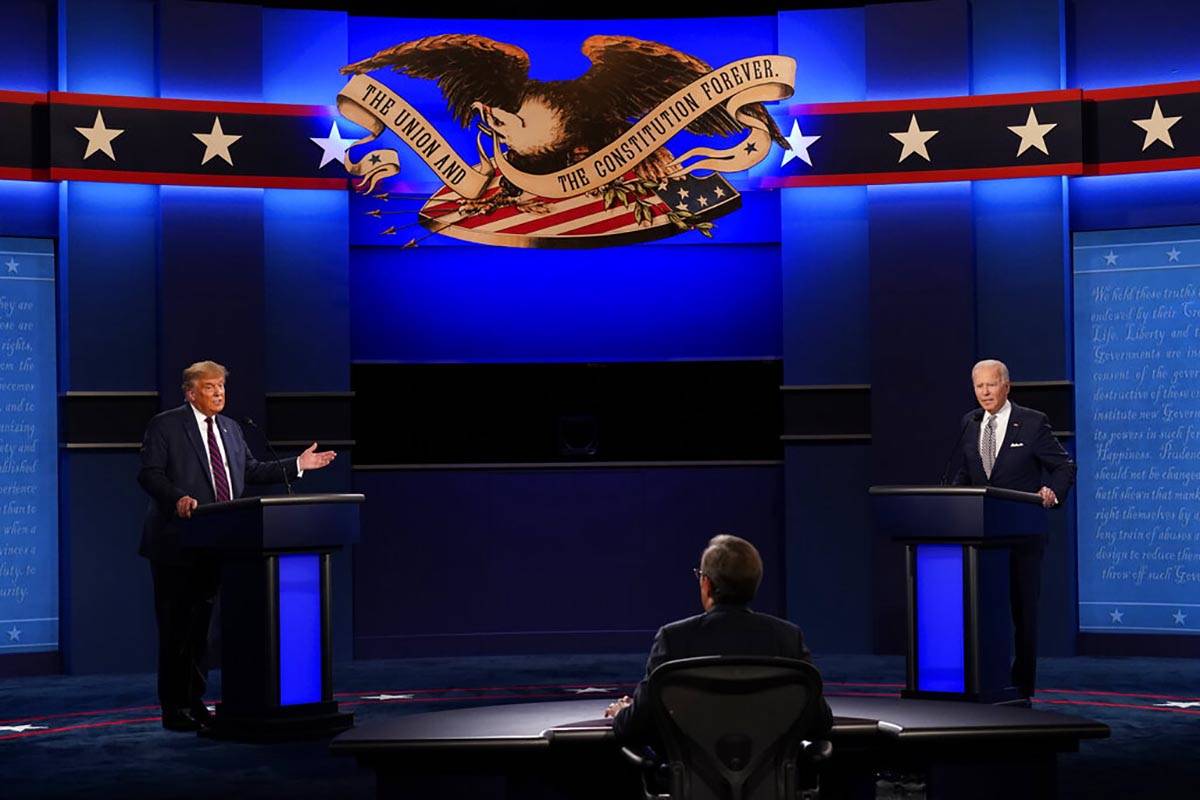VICTOR JOECKS: The debate about debate will define America for decades to come

Perhaps the most important debate in America is about debate itself.
The Biden administration made it clear recently that it wants social media companies to censor some content — and users — it finds objectionable. This isn’t an abstract goal. White House officials are monitoring social media and telling companies what it wants removed and amplified.
“Within the surgeon general’s office, we’re flagging posts for Facebook that spread disinformation,” Biden press secretary Jen Psaki said recently. She laid out a series of demands the White House has for private social media companies, including removing certain posts and promoting others.
Psaki wasn’t finished.
“You shouldn’t be banned from one platform and not others if you — for providing misinformation,” she said.
It wouldn’t be surprising to hear these sentiments coming from Vladimir Putin or Xi Jinping. Totalitarian regimes aren’t interested in debate. They maintain power in part by limiting their opponents’ ability to speak.
It is surprising to hear these sentiments coming from the White House. Since the country’s founding, America has had vigorous — and even nasty — discussions and disagreements.
But there is much less agreement today about the process of public discourse. In a formal debate, each side presents its best arguments, and a judge selects a winner. The real-world version of this is much more freewheeling. Defenders of the marketplace of ideas contend vigorous debate is the best way to determine the best ideas, given that all humans are fallible.
There are other — more devious — ways to win a debate. One way is to prevent the other side from speaking. Censorship allows you to win by default. That’s what Biden wants to do. You may agree with Biden’s objections to certain information. But it’s an entirely different thing to agree with the White House’s desire to silence those voices. Laundering this authoritarian desire through private companies doesn’t make it more palatable either.
Biden claims his actions are necessary to prevent the spread of misinformation. But determining what is and isn’t misinformation is often a subjective judgment call. Sometimes misinformation is a label applied to true statements presented in a way someone objects to. In other cases, what was once deemed misinformation becomes widely accepted. One recent example is the possibility that the coronavirus escaped from a Chinese lab.
It’s unclear how bipartisan the opposition to censorship is today. On Thursday, Sen. Amy Klobuchar, D-Minn., introduced a bill that would allow social media platforms to be sued if they amplified “health misinformation” during a public health emergency. The secretary of Health and Human Services would determine what qualifies.
See the difference here? Republicans are upset at Facebook and other social media companies for censoring too much. Some Democrats are upset at Facebook for not censoring enough.
Another way to win a debate without winning an argument is to label your opponent’s speech as violence. That sounds absurd in the abstract, but it happens regularly.
For instance, the American Booksellers Association sends boxes of books to its members. It’s a way for publishers to promote upcoming releases. A recent box included “Irreversible Damage” by Abigail Shrier, which questions the transgender orthodoxy. After complaints on Twitter, the group apologized, calling the book’s inclusion a “violent incident.”
Think about this. A group representing booksellers equated the mere presence of a book with an act of physical harm. Among many college students that’s a mainstream view.
The acceptance of this idea makes debating hot-button topics impossible. After all, if someone commits an actual act of violence against you, you’d be justified in calling the police or punching him in self-defense.
Cancel culture is a bit of a catch-all term, but it’s another example of the debate over who can say what.
There are many important policy discussions going on right now. But don’t miss the larger picture. Who wins the debate over how we can debate will have long-lasting implications.
Victor Joecks’ column appears in the Opinion section each Sunday, Wednesday and Friday. Contact him at vjoecks@reviewjournal.com or 702-383-4698. Follow @victorjoecks on Twitter.